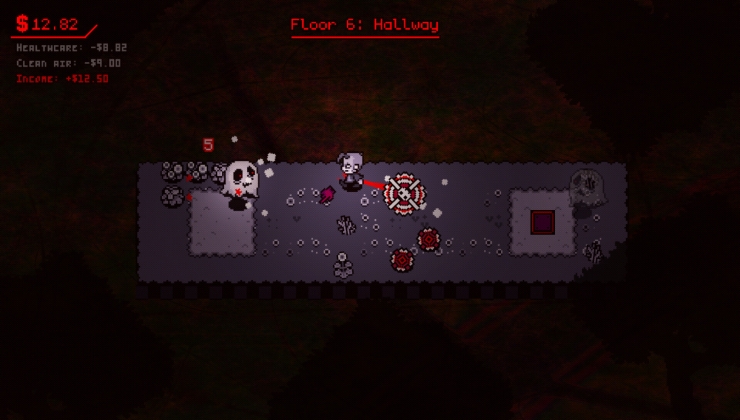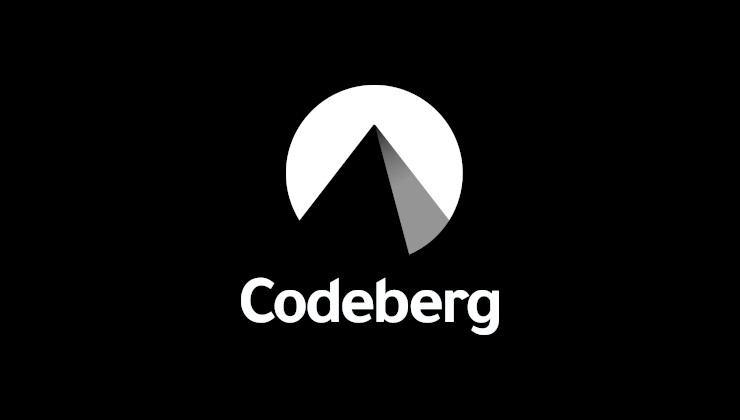Unity Technologies have announced an overhaul to their fees for game developers, which now includes tracking game installs and revenue. Update notes: future updates will be at the bottom of the article.
In the announcement they call it the Unity Runtime Fee, which is based upon a qualifying game being downloaded by users. They said they chose it because they believe "an initial install-based fee allows creators to keep the ongoing financial gains from player engagement, unlike a revenue share". Given that it's a flat-fee though, this will likely sting game devs who sell games at a lower cost since this fee will be on top of all their other fees (like Steam's 30% cut for example).
What games will be hit? As they explained:
- Unity Personal and Unity Plus: Those that have made $200,000 USD or more in the last 12 months AND have at least 200,000 lifetime game installs.
- Unity Pro and Unity Enterprise: Those that have made $1,000,000 USD or more in the last 12 months AND have at least 1,000,000 lifetime game installs.
This plan comes into place on January 1st, 2024 and they gave this breakdown of it:
Note: Unity said it won't be applied retroactively when you hit the cap, the install fee is charged after the threshholds have been met for additional installs. However, it will apply to games already on the market. However, games that do not hit the thresholds or aren't monetised at all will not be required to pay the fees.
This is on top of the Unity subscription developers already pay, although Unity will be removing the annual revenue limit on the Unity Personal plan when this launches. For anyone on Unity Pro though, for example, the above is on top of the subscription cost which is $2,040 per year or $185 a month per-person.
One of the concerns with this is from a privacy standpoint: how exactly will they be tracking this? Since they will be invoicing developers directly based on their install tracking. They don't really make that clear. There's various other problems that Unity need to make clear. As just one example - what about keys for a game in a charity bundle, how are they going to be counted if the game is paid but they're given away? What about if there's a pirated version, how are they tracking legit paid installs? There's probably numerous other examples where it may cause problems.
Another change buried in the FAQ is that people on the Unity Personal plan need internet access to continue to use Unity. If you lose internet, you can only continue using it for 3 days while offline.
Update: since there's been a huge uproar from Unity developers, especially on their official Unity forum, one of their team has clarified some details about the monthly rate:
Ya, sorry, I get how this wording is confusing. So, let's say you have your 1,000,001th install, officially pushing you over the cap. You will have a fee of 15 cents. You will not pay that 15cents every month. Just a single time. The monthly thing is to indicate a monthly assessment to see where your installs are and revenue is to see if you had more installs or dropped below the cap. Does that help?
In another post, they also clarified it's "Per game / project".
Update #2: On social network X, Unity put up this statement I've copied below in case you can't access X:
Today we announced a change to our business model which includes new additions to our subscription plans, and the introduction of a Runtime fee. We wanted to provide clarifying answers to the top questions most of you are asking.
Yes, this is a price increase and it will only affect a small subset of current Unity Editor users.
Today, a large majority of Unity Editor users are currently not paying anything and will not be affected by this change. The Unity Runtime fee will not impact the majority of our developers.
The developers who will be impacted are generally those who have successful games and are generating revenue way above the thresholds we outlined in our blog. This means that developers who are still building their business and growing the audience of their games will not pay a fee. The program was designed specifically this way to ensure developers could find success before the install fee takes effect.
We want to be clear that the counter for Unity Runtime fee installs starts on January 1, 2024 - it is not retroactive or perpetual. We will charge once for a new install; not an ongoing perpetual license royalty, like revenue share.
We looked for ways to lessen the impact on developers, and provide ways to bring the Runtime fee to zero. If you’re using any of our ad products, Unity Gaming Services or cloud services, etc. please contact us to discuss discounts.
We are actively listening to and following your questions closely. Please review our FAQ (https://on.unity.com/3PAiqHH) on today’s announcement. We also invite you to continue to discuss these changes with us on our forums: https://on.unity.com/3RmyLRx.
Update #3 13/09/2023: Unity have now compiled a list of common questions and answers in their official forum post, which doesn't seem to have made things any better. In fact, it only confirmed some of the worst fears from developers. Like this for example:
Q: If a user reinstalls/redownloads a game / changes their hardware, will that count as multiple installs?
A: Yes. The creator will need to pay for all future installs. The reason is that Unity doesn’t receive end-player information, just aggregate data.
So, at the current time with their plan, developers need to pay each time you uninstall and re-install. And each time you install on a different device. As they briefly explained there, they have no way to tell the actual difference on reinstalls since it's just aggregate data.
Then there's this too:
Q: If a game that's made enough money to be over the threshold has a demo of the same game, do installs of the demo also induce a charge?
A: If it's early access, Beta, or a demo of the full game then yes. If you can get from the demo to a full game then yes. If it's not, like a single level that can't upgrade then no.
What this means is that if developers have a demo for their game, and this game is over both the install and revenue threshold, if the demo progress carries over into the full game the demo itself is classed as another install that will cost developers money (even if the demo player doesn't buy the game).
As for how Unity are tracking installs, especially for things like pirated installs and people having a grudge against a developer to spin up lots of reinstalls (it will happen…), Unity basically tell you to trust their black-box proprietary tech on that (from their FAQ):
We do already have fraud detection practices in our Ads technology which is solving a similar problem, so we will leverage that know-how as a starting point. We recognize that users will have concerns about this and we will make available a process for them to submit their concerns to our fraud compliance team.
Also from their replies on X:
We leverage our own proprietary data model, so you can appreciate that we won’t go into a lot of detail, but we believe it gives an accurate determination of the number of times the runtime is distributed for a given project.
So it's just a "trust me bro" situation here for developers.
A lot of developers are absolutely furious at Unity. Not just because it has been communicated so badly, and because even just based on that one answer above the cost to developers will be ridiculous, but because Unity just pulled the rug from under developers with entirely new terms even for existing games. Even if they reverse course, it shows that Unity are willing to change anything at any time which is incredibly risky for developers embarking on multi-year game development. This thread on X from respected developer Rami Ismail highlights things quite well.
Perhaps it's time to take a look at the free and open source Godot Engine?
All I have left on my rigs across my home are emulated games and a few mugen games.
Stuff like this really pushes me further and further away from the modern gaming scene.
But damn, whoever thought of this one really didn't think things through. Even in the best practical scenario, charging by install will make it impossible to know what the cost of your engine will be. Especially for the lowest tier, this would make it impossible to use for anything but free games. I suppose the devs have at least an option to make their game free after reaching an income of $199k. But honestly, I feel that the Unity board room is a bit out of touch with their customer base.
I understand that Unity is in a bit of a difficult position. Their main competitor is Unreal Engine and Epic is not playing fair competition by leveraging Fortnite money to buy customers. And this is probably made worse by the fact that Unity mostly gets the smaller development teams for which UE4/5 is simply too complicated.
But damn, whoever thought of this one really didn't think things through. Even in the best practical scenario, charging by install will make it impossible to know what the cost of your engine will be. Especially for the lowest tier, this would make it impossible to use for anything but free games. I suppose the devs have at least an option to make their game free after reaching an income of $199k. But honestly, I feel that the Unity board room is a bit out of touch with their customer base.
Bigger problem epic can just the same nothing stopping them if unity gets away with it.
Bigger problem epic can just the same nothing stopping them if unity gets away with it.Epic confirmed years ago, and [again](https://twitter.com/TimSweeneyEpic/status/1701619220851617920) recently, they cannot change the licensing terms for existing developers. The license you get for Unreal is perpetual on the version you have.
That was supposed to be the case for Unity too, but as they've shown yesterday...
Also, remember when, last year, Unity's CEO called game devs that don't monetise like crazy "fucking idiots" ? Well, the current shitshow seems like a continuation of that. "If you want to afford the install fees, step up the monetisation."
That was supposed to be the case for Unity too, but as they've shown yesterday...I've never seen it stated that you get a perpetual license for Unity, ever. Do you have any sources on that?
That was supposed to be the case for Unity too, but as they've shown yesterday...I've never seen it stated that you get a perpetual license for Unity, ever. Do you have any sources on that?
Retroactive TOS changesFrom https://blog.unity.com/community/updated-terms-of-service-and-commitment-to-being-an-open-platform, which was posted back in 2019.
When you obtain a version of Unity, and don’t upgrade your project, we think you should be able to stick to that version of the TOS.
In practice, that is only possible if you have access to bug fixes. For this reason, we now allow users to continue to use the TOS for the same major (year-based) version number, including Long Term Stable (LTS) builds that you are using in your project.
Moving forward, we will host TOS changes on Github to give developers full transparency about what changes are happening, and when. The link is https://github.com/Unity-Technologies/TermsOfService.
The GitHub link is dead, by the way. :D
Well well, what do we have here then, oopsies.That was supposed to be the case for Unity too, but as they've shown yesterday...I've never seen it stated that you get a perpetual license for Unity, ever. Do you have any sources on that?
Retroactive TOS changesFrom https://blog.unity.com/community/updated-terms-of-service-and-commitment-to-being-an-open-platform, which was posted back in 2019.
When you obtain a version of Unity, and don’t upgrade your project, we think you should be able to stick to that version of the TOS.
In practice, that is only possible if you have access to bug fixes. For this reason, we now allow users to continue to use the TOS for the same major (year-based) version number, including Long Term Stable (LTS) builds that you are using in your project.
Moving forward, we will host TOS changes on Github to give developers full transparency about what changes are happening, and when. The link is https://github.com/Unity-Technologies/TermsOfService.
The GitHub link is dead, by the way. :D
Also does unity aggregate the number of install themselves, then bill the devs based on it? Sounds convenient, can I also bill my company based on my 25h/day -self determined- work schedule?
What is the relevance of number of installs?
If I was to guess, it's because they are squarely targeting the mobile free-to-play market where installs are high. You gotta remember Riccitello (the CEO) insulted developers as "f*cking idiots" if they don't monetize right. From the context... he meant microtransactions. This was just last year, and that's where he thinks the money is. (https://www.pocketgamer.biz/interview/79190/unity-ironsource-john-riccitiello-marc-whitten-merger/)
As pointed by slembcke, the only context in which this business model has a sliver of sense is mobile F2P games. But even then, it is probably about the worst and most convoluted solution anybody could think of.
Also does unity aggregate the number of install themselves, then bill the devs based on it? Sounds convenient, can I also bill my company based on my 25h/day -self determined- work schedule?If you're a consultant . . .
So despite that I find it a dumb move I am wondering how they can simply change the terms and get away with it.
What scumbags! Thanks venture capital and publicly traded companies.












 How to set, change and reset your SteamOS / Steam Deck desktop sudo password
How to set, change and reset your SteamOS / Steam Deck desktop sudo password How to set up Decky Loader on Steam Deck / SteamOS for easy plugins
How to set up Decky Loader on Steam Deck / SteamOS for easy plugins
See more from me